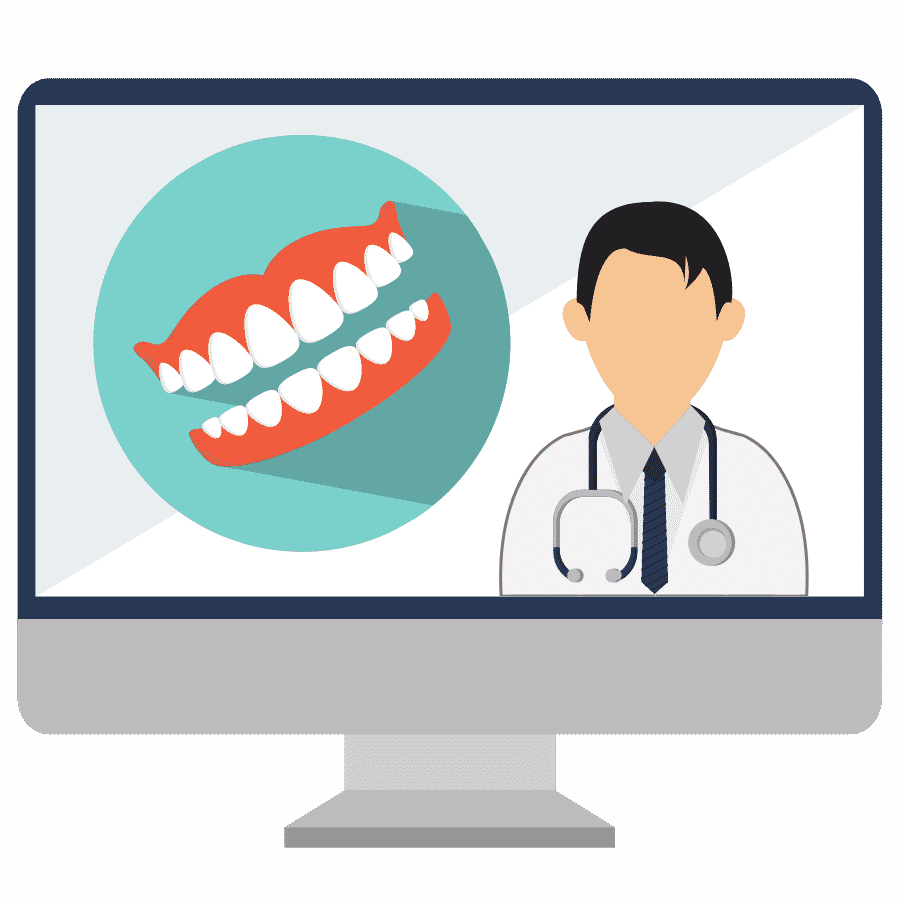The Connection Between Gum Disease and Alzheimer’s Disease
Maintaining healthy gums and teeth is vital to keeping your body strong through good nutrition. But did you know that a growing number of studies point to a link between gum health and brain health as well?
For example, as far back as 2010, the Journal of the American Geriatrics Society published a Boston University study that investigated the link between poor oral health and cognitive decline by tracking the exams of about 600 men for 32 years. The study found that participants with gum disease and tooth loss had an elevated risk of dementia, although it could not rule out other contributing factors.
Exactly what is gum disease?
Also known as periodontal disease, gum disease refers to chronic inflammation of the tissues that support the teeth. It’s caused by harmful bacteria that exist in plaque buildup that forms on the teeth. In the initial stages, referred to as gingivitis, the disease often causes red, swollen gums that bleed during brushing and flossing.
If left untreated, gingivitis can progress into advanced periodontal disease, or periodontitis. It’s this advanced stage of bacterial infection and ongoing inflammation that has been linked to the development of Alzheimer’s disease and other types of dementia.

Does gum disease cause Alzheimer’s disease?
An impressive battery of studies since 2010 has continued to point to a link between bacterial infection of the gums and the development of Alzheimer’s disease later in life. Here’s a review of some of the most notable research:
- In 2016, a British study reported by the Alzheimer’s Society evaluated people with mild to moderate Alzheimer’s disease and gum disease every six months for signs of accelerated cognitive decline. The results indicated those with periodontal disease lost memory ability six times faster than people who did not have a gum infection.
- In 2019, a University of Louisville research team used mice to show that an oral infection of Porphyromonos gingivalis, a type of bacteria that causes chronic periodontitis, could spread to the brain. There, an infection and resulting inflammation could cause increased production of beta-amyloid plaque, a protein that’s known to form in the brain as Alzheimer’s disease develops.
- The following year, a team from the National Institute on Aging’s Intramural Research Program analyzed Centers for Disease Control (CDC) data that tracked 6,000 people of various ages for over 26 years. The analysis revealed that older adults with signs of gum disease or infection at the beginning of the study period were more likely to develop Alzheimer’s disease than participants who did not have evidence of harmful oral bacteria at the study’s outset.
- A year later, a study by the NYU College of Dentistry and Weill Cornell Medicine’s Brain Health Imaging Institute found a link between bacterial imbalances in the gums and the presence of beta-amyloid protein plaques.
- Then, in 2024, researchers from several renowned institutions, led by the Columbia University College of Dental Medicine, discovered a link between periodontitis and unfavorable MRI scans typical of Alzheimer’s disease and related types of dementia.
Researchers say more studies are needed to determine whether gum disease actually causes dementia. For now, periodontitis is considered a risk factor for the development of Alzheimer’s disease. However, scientists have theorized that bacteria from infected gums could spread to the brain by infiltrating the bloodstream. Once the bacterial infection reaches the brain, it could destroy neurons and promote production of beta-amyloid plaques that lead to the devastating effects of Alzheimer’s disease, which include dramatic memory loss and eventually the loss of brain function that’s critical to life.
Periodontal disease linked to additional serious medical conditions
Alzheimer’s disease is not the only adverse health condition that has been linked to advanced gum disease in recent years. Bacterial gum infections have also been linked to heart disease, rheumatoid arthritis, osteoporosis and several types of cancer.
Moreover, periodontal disease is the biggest cause of tooth loss. This often leads to malnutrition because people with missing or rotten teeth limit their diets to foods that are easy to chew and typically of low nutritional value. Unchecked gum disease can also lead to loss of bone mass in the jaws, which create the appearance of premature facial aging.
Best treatment for advanced periodontal disease
Prevention is always the best approach to staying healthy, and that advice applies to protecting gum tissue from bacterial infection by brushing and flossing your teeth daily as recommended by the American Dental Association. It’s also important to schedule routine dental checkups and professional teeth cleanings, during which dental experts will inspect your mouth and alert you to signs of gum disease if warranted.
However, for many people, the signs of gum disease go unnoticed until the condition has advanced to the point that their teeth become weak and wobbly or even fall out. What’s more, some people have a genetic predisposition to gum disease that makes the advanced stages difficult to avoid. The best treatment depends largely on what stage of gum disease you’re in.
For those whose advanced periodontal disease has already led to multiple missing or failing teeth, full mouth dental implants may be the best treatment option. New Teeth Now is a well-established, state-of-the-art dental implant clinic specializing in full arch and full mouth dental implants. When you turn to New Teeth Now for treatment, you can feel confident that the bacterial infection causing your gum disease will be treated and cured by our board-certified oral surgeons at the same time as they replace your natural teeth with long-lasting dental implants. Provided that you follow our instructions for caring for your dental implants, you won’t have to worry about the debilitating effects of gum disease and tooth loss anymore.
What if advanced gum disease has caused extensive bone loss?
Even if you’ve been told that loss of bone mass makes you ineligible for dental implants, there’s a good chance you can get them at New Teeth Now. Our highly skilled oral surgeons have been at the forefront of zygomatic implant placement and have performed thousands of these procedures over the course of many years.
Zygomatic implants are dental implants that are anchored into the cheekbone, or zygoma, instead of the jawbone. These specially designed implants offer patients a more convenient and potentially less costly alternative to bone grafting, which is often considered a prerequisite for dental implants in cases that involve advanced periodontal disease and extensive bone loss.
A one-stop shop for treating periodontitis with dental implants

At New Teeth Now, we take pride in offering all the services associated with getting full mouth dental implants under one roof. Our board-certified oral surgeons have the skills to extract any remaining teeth and remove the vestiges of periodontal disease during the same procedure in which they place dental implants. What’s more, all of this will be done while you sleep peacefully and without pain, thanks to general anesthesia administered by our team of highly qualified anesthetists.
Our facilities in Florida and California are also equipped with an in-house dental lab, which means the new teeth and prosthetic gums to be fitted to your dental implants will be custom-crafted just for you while you recover immediately after your procedure. Thanks to the latest advances in digital technology and our exceptionally skilled team, you’ll receive a perfect fit and go home with a beautiful new set of teeth the same day as your procedure.
Your streamlined yet customized experience begins with a consultation to help you determine whether replacing your teeth and diseased gums with full mouth dental implants is right for you. Contact us today to get started.








